| THIS WEEK |
Today’s the day. Six thousand mostly Black warehouse workers in Bessemer, Alabama are now ending the mail vote balloting on whether to form a union. We won’t know the results for at least a few days, but we can’t overstate the importance of just the existence of this moment.
"This is the ultimate David and Goliath story,” noted Institute for Policy Studies Black Worker Initiative Director Marc Bayard in the Financial Times. "It’s one of the largest companies in the world, and those workers are located in one of the historically most conservative and historically racist states in the US. That’s the spark that Amazon is most worried about.”
So keep your fingers crossed for the Amazon workers.
Our entire team here at Inequality.org also has a request this week. We’ve created a subscriber survey to learn more about what you like about this weekly newsletter and how we can improve it. Please take a few minutes to fill it out so we can deliver a resource that helps us all build a more equal world. We'd really appreciate it!
Chuck Collins and Rebekah Entralgo,
for the Institute for Policy Studies Inequality.org team |
|
| |
|
| INEQUALITY BY THE NUMBERS |
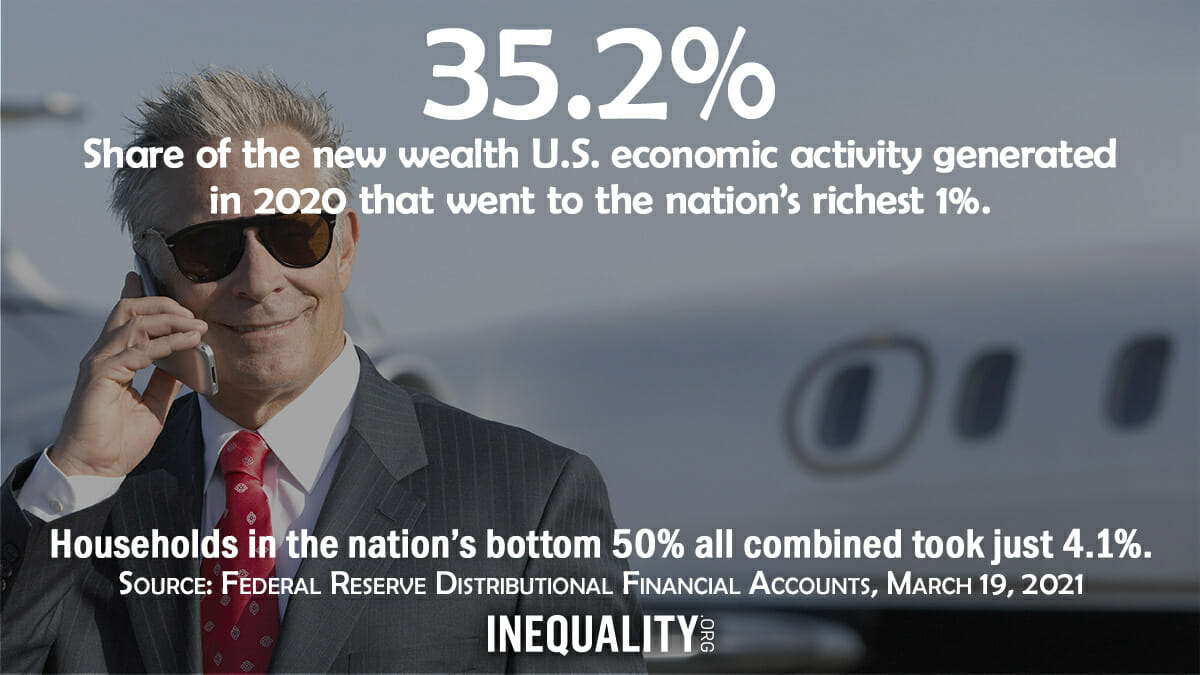 |
|
|
|
| |
|
| FACES ON THE FRONTLINES |
 |
| Equal Pay for America’s Domestic Workers, Too
|
| The global Covid-19 pandemic has underscored the important role that domestic workers play in ensuring that our loved ones are cared after. But their essential labor remains severely undervalued. Ai-jen Poo, the co-founder and executive director of the National Domestic Workers Alliance, last week testified during a congressional Equal Pay Day hearing and explained how deep that undervaluing goes. The caregiving and domestic work performed primarily by women of color gets paid at less than half the rate of comparable work in other industries. Inequality.org managing editor Rebekah Entralgo has more on this growing pay gap. |
|
| |
|
| WORDS OF WISDOM |
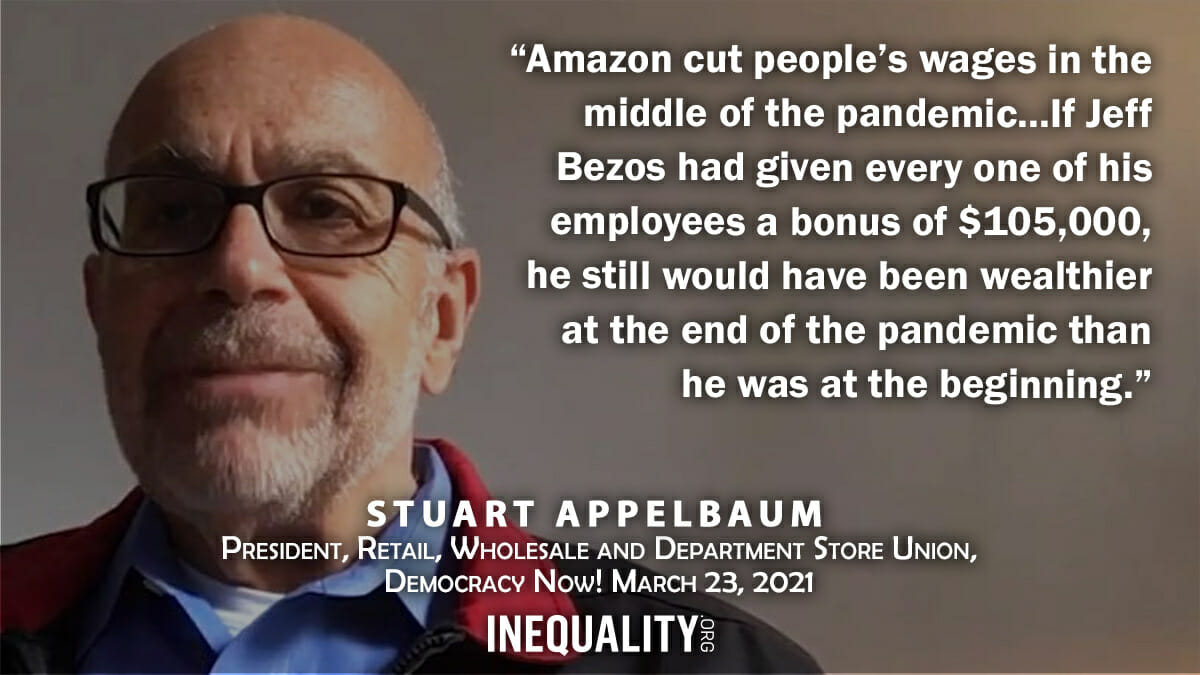 |
|
|
|
| |
|
PETULANT PLUTOCRAT
OF THE WEEK |
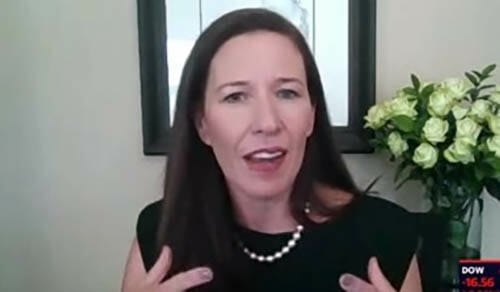 |
| Can’t You Just Content Yourself with ‘Fulfillment’? |
| Kathryn McLay, the Walmart executive who runs the Sam’s Club stores, pulled down $13.5 million last year, about 600 times what Walmart workers making $11 an hour annually earn. How can Walmart — an empire with $5 billion in quarterly profits — justify a wage that low and oppose a $15 federal minimum? A reporter last week challenged McLay along those lines. Her initial response: dissing the value of a national minimum. With living expenses so different state to state, she declared, “having one amount across the nation can cause a little bit of a disparity.” Everyone ought to look, McLay went on, “more holistically” at Walmart’s wages. The company, after all, is offering workers “a sense of fulfillment.” Walmart CEO Doug McMillion, she noted, actually “started out as an hourly associate”! So Walmart workers should be grateful for the “opportunity” to work at food-stamp-level wages? McLay’s take: “I think it’s really important that they know how valued they are.” |
|
| |
|
| BOLD SOLUTIONS |
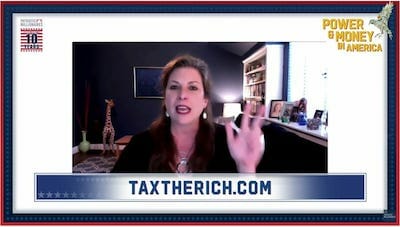 |
| To Fight Inequality, Fight Voter Suppression! |
| In the wake of GOP election losses this past November and January, Republicans in 43 states have introduced at least 250 bills to make it harder to vote. Patriotic Millionaires, a group best known for mobilizing wealthy Americans to advocate for higher taxes on the rich, is now also tackling voter suppression. Our ongoing struggle for a more decent society, Patriotic Millionaires president Erica Payne explains, rests on three pillars: equal political representation, a guaranteed living wage for all, and a fair tax system. Without all three, we will not be able to build a more stable, prosperous, and inclusive nation. Payne moderated a lively virtual event last week that featured “mini-TED talks” by two dozen activists, intellectuals, and practitioners. They included leading voting rights advocates from the Brennan Center for Justice and Vote.org, as well as a number of fair tax experts, including Inequality.org's Sarah Anderson and Chuck Collins. |
|
| |
|
| GREED AT A GLANCE |
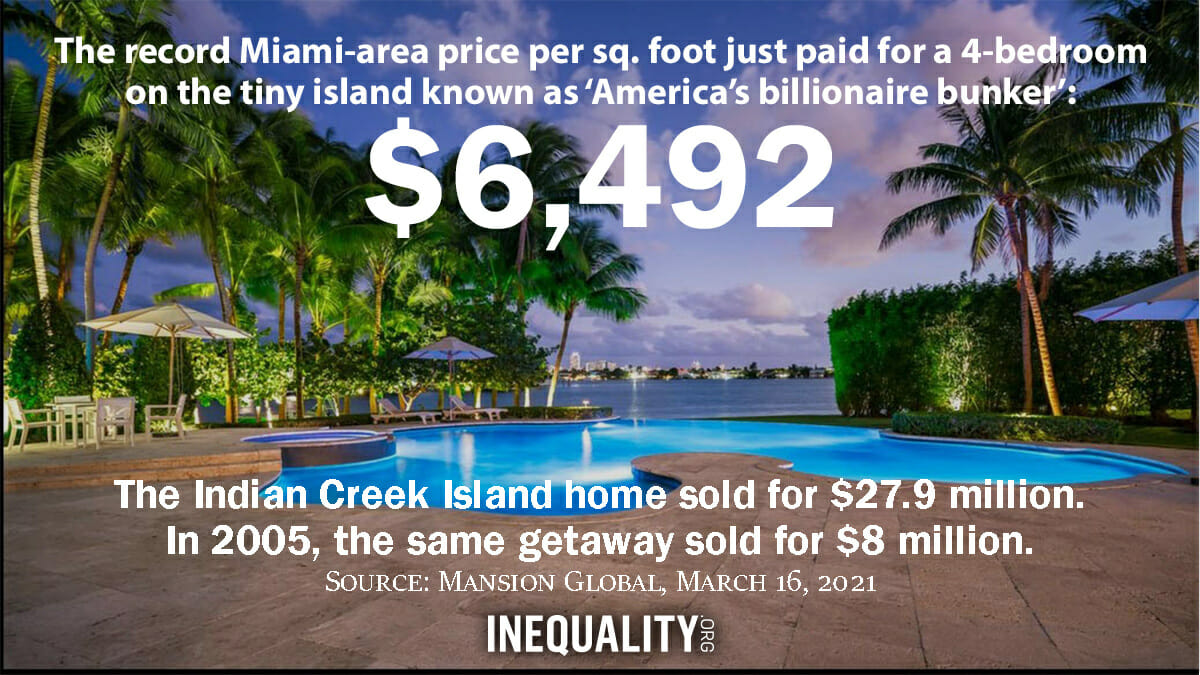 |
|
|
|
| |
|
| TOO MUCH |
 |
| Hey, Wealthy Tax Cheat, Hearing Any Footsteps? |
| Cheating on your taxes — if you happen to be filthy rich — has never been easier. Or more lucrative. So we’re learning from a new surge of scholarship from academics and activists. Many of our wealthiest, the data show, are barely paying any tax at all. Last year, in fact, only 2 percent of taxpayers with incomes over $1 million even faced an audit. Funding more IRS auditors would certainly help catch more cheats. But auditors alone can’t stop people of means — and their lawyers and lobbyists — from manipulating our tax code’s “gray areas” or getting that code rewritten to serve their self-interests. We can do better. Legislative decisions created a tax system that winks at tax evasion. Legislative decisions could, by the same token, fashion a tax system that clamps down on wealthy tax cheaters. That refashioning now has some real momentum. Inequality.org co-editor Sam Pizzigati has more. |
|
|
|
| |
|
| MUST READS |
This week on Inequality.org
Sarah Anderson, If the Minimum Wage Had Increased as Much as Wall Street Bonuses Since 1985, It Would Be Worth $44 Today. The 2020 bonus pool for 182,100 securities industry employees could pay for more than 1 million jobs paying $15 per hour for a year.
Chuck Collins, Want to Fix the Nation's Woes? Tax Wealth. Members of the billionaire class have used their clout to rig the economy in their favor.
Brian Wakamo, As Rich Nations Protect Corporate Patents, the Global Vaccine Divide is Widening. People in high-income countries that represent 16 percent of the world’s population have received 56 percent of doses.
Chuck Collins, Who Are the 10 Biggest Pandemic Profiteers?. One year after the Covid-19 pandemic began, U.S. billionaires have made out like gangbusters at the expense of workers.
Elsewhere on the Web
Amy Goodman, Pandemic Profiteers: How U.S. Billionaires Like Amazon’s Jeff Bezos Saw Wealth Grow by $1.3 Trillion, Democracy Now! An interview with Inequality.org co-editor Chuck Collins.
Larry Getlen, The shocking ways billionaires, highly profitable companies hide their money, New York Post. A book review of Inequality.org co-editor Chuck Collins’ new book, The Wealth Hoarders: How Billionaires Pay Millions to Hide Trillions.
Rhymer Rigby, The case for taxing the rich more, Financial Times. Old arguments against progressive taxation make little sense in a post-pandemic world.
Neil Lewis Jr., Covid-19 Reminded Us of Just How Unequal America Is, FiveThirtyEight. The pandemic and all of its disparate impacts — on our health, our education system, our politics — have revealed we may not be as exceptional as we once thought we were.
Erin Lowry, Personal Finance Has Failed to Reckon With Inequality, Bloomberg. Advisers have to be honest about the privilege that allows some people to build wealth much easier than others.
Jacob Bernstein, Here’s How Bored Rich People Are Spending Their Extra Cash, New York Times. Our wealthy have realized they look boorish dropping millions on inane luxuries. So now they’re calling their profligate spending “investing” in “alternate asset classes.”
Michael Heller and James Salzman, We need to rein in billionaires. Start with South Dakota, Washington Post. America’s ultra-wealthy have pulled off a brilliantly designed heist. A nation created in opposition to inherited status now has states competing with one another to promote perpetual family wealth.
Dorothy Brown, How the U.S. Tax Code Privileges White Families, Atlantic. This particular shameful story starts a century ago with a rich Seattle corporate exec.
Harold Meyerson, The Berkeley School, American Prospect. Economics has grown more concerned about inequality and how to fix it. The instigators of this epochal progressive shift ply their trade at UC Berkeley.
Amy Ta, Horse polo, $1,000 books: How private schools embody profound inequality in US, KCRW. Elite private school parents amount to customers at a five-star resort.
James Schmitz, Jr., Because of Monopolies, Income Inequality Significantly Understates Economic Inequality, Federal Reserve Bank of Minneapolis. Monopolies in the United States reduce the purchasing power of low-income households much more than high-income households.
Ben Baumberg Geiger, The effects of information about inequality in different countries, Inequalities. Learning about how unequally your society distributes wealth seems to impact attitudes toward luck and merit in some nations much more than others.
Ancient Maya houses show wealth inequality tied to despotic governance, UNM Newsroom. New anthropological research on wealth inequality in classical Mayan times finds that the more wealth concentrates, the more despotic the society. |
|
| |
|
| A FINAL FIGURE |
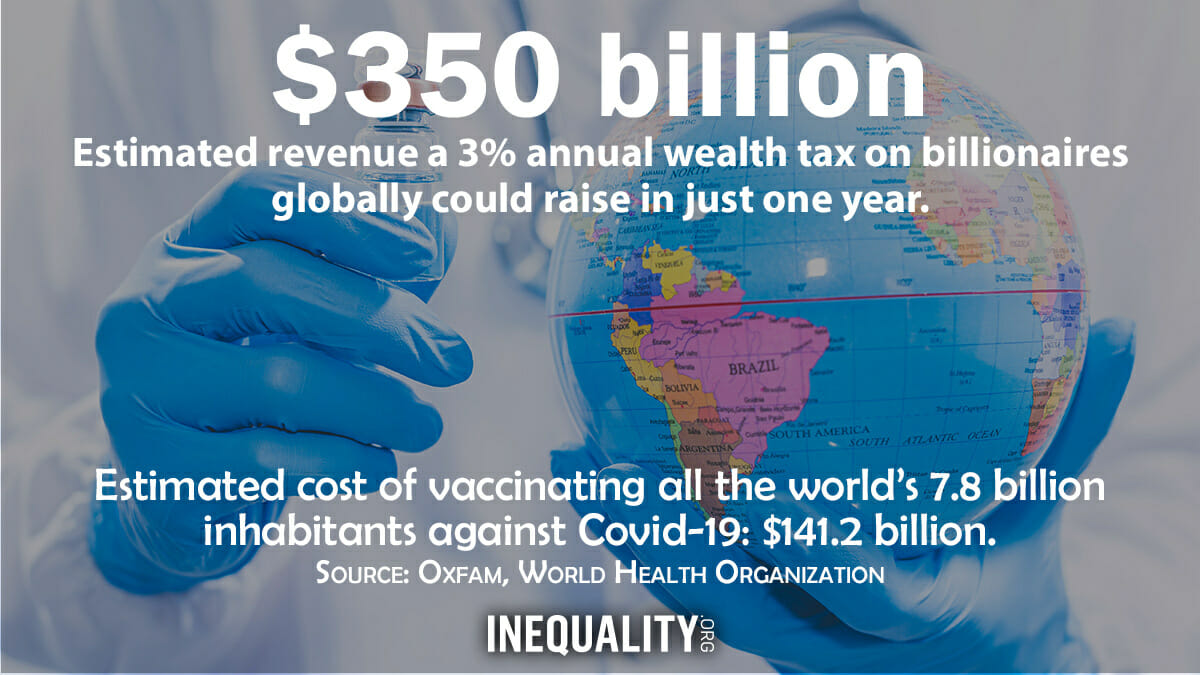 |
|
|
|
| |
|
| BE THE 1% (NO, NOT THAT 1%) |
 |
Our goal for 2021: that 1% of our Inequality.org subscribers become monthly sustainers and help grow our newsletter and research efforts. Be the 1%, for as little as $3 a month! |
|
|
|
| |
|
|